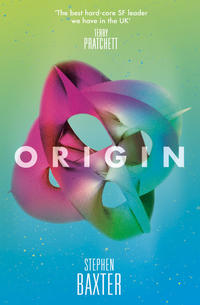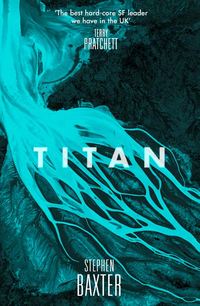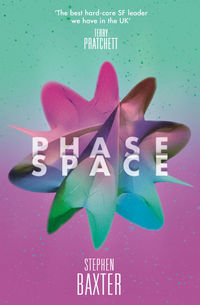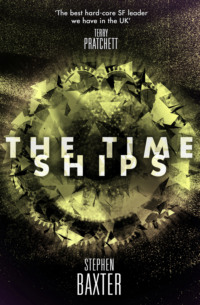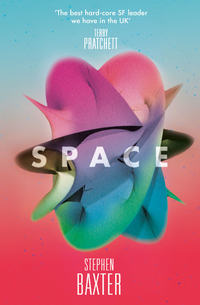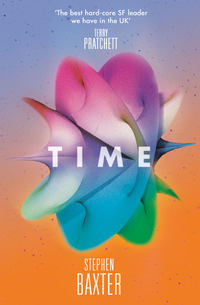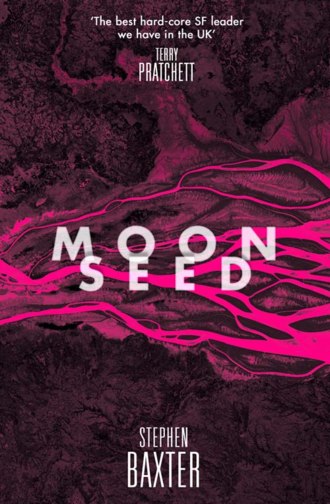
Полная версия
Moonseed
So be it. She wore the damn hat, and forgave Alfred for his residual love for her.
Breathing hard from the climb, she clambered on top of an old gun emplacement with a bunch of other tourists and studied the view.
She was at the highest part of Diamond Head crater, here on Oahu. She was surrounded on three sides by Pacific Ocean. The water was royal blue, laced with whitecaps, in its beauty showing no signs of the problems Venus had brought: the plankton die-backs, the collapse of the food chain in some parts of the oceans, depletion of stocks of fish and mammals. In the south she could see windsurfers skimming over the waves, radiation-proof skinsuits gleaming, their elegance and speed a balance between forces, aerodynamic and gravitational. In the west, the sun was already dropping towards the horizon. To the north the Miracle Mile along Waikiki Beach was a thin, golden strip of sand walled off from the interior by slab-like high-rise hotels. Sun, sand, sea, tourists.
And when she looked back she could see into the crater of a volcano two million years dead.
They found a seat. Alfred dug under his poncho and pulled out a laptop; without preamble, he started showing her images of Venus.
‘Before and after,’ he said drily. He retrieved a classic Venus-from-space image, the featureless pool ball. ‘Venus was our neighbour,’ he said. ‘At its closest, only a hundred times as far away as the Moon. And it wasn’t so different from Earth in size. But that’s as good as it gets. Otherwise, it was a hell-hole. Fifty miles of carbon dioxide, laced with a little sulphuric acid. So hot the rocks glowed, dull orange.’
He showed her surface images, craters and domes and valleys and mountains, constructed from a radar survey by the Magellan spacecraft. ‘Venus was covered by volcanism. There were flood lavas and volcanic cones and domes, and other features which don’t have any analogues on Earth. We didn’t see plate tectonics, like Earth; we think Venus was a one-plate planet dominated by hot-spot volcanism. My favourite hypothesis is that there was a catastrophic global resurfacing every half-billion years.’
‘A what?’
‘The crust melting, globally. There are problems with the heat flow from the interior otherwise … It would be like five hundred million years of geology crammed into a few centuries. Now,’ he said. ‘After. An image taken by the Hubble this morning.’
There was no evidence of a spherical shape. She made out a crudely-defined, blurred oval, with extensive tails, like a comet’s.
Alfred said, ‘You’re looking at a cloud of atmospheric gas, mostly frozen, and ground-up rock.’
‘The rock’s from the surface?’
‘Mostly the mantle, as far as we can tell. Most of the mass is still concentrated near the point where the centre of gravity of the planet used to be. We tried radar pulses from Arecibo, and … Well. Monica, we can’t find a solid object there any more. The substance of the planet is spreading out along the orbit. The ring probably won’t stay stable; the perturbation by Earth’s gravity will –’
‘Hold it. Alfred, I can’t follow you. You’re saying that Venus no longer exists.’
‘Not as a coherent solid, no.’
‘That’s impossible. How much energy would it take to destroy a planet?’
He considered. ‘Well, roughly speaking, you would have to lift every piece of rock to escape velocity, out of Venus’s own gravity well. There’s a quantity called the gravitational binding energy … For Venus, which had eighty per cent of Earth’s mass, it works out as ten to power thirty-two joules – umm, something like a thousand billion times our nuclear arsenal.’
‘Just for the record, we aren’t talking about your global volcanic resurfacing here, are we?’
He smiled. ‘Even that would be quite a spectacle, if it occurred in the lifetime of this astronomer. But no, it’s orders of magnitude beyond that.’ He rubbed his nose, smearing the gaudy sun block there. ‘Those are big numbers. But there’s another way of looking at it. If you consider the energy density required, averaged over the planet’s volume, it isn’t so high. Something like a tanker of gas per cubic yard or so, I guess.’
‘What are you telling me?’
‘We think we are looking at some funny physics over there, Monica. Which is why you and the rest of the particle physicists are going to have to work on this with us.’
‘Funny physics?’
‘Look at this.’ He pulled up results from a cosmic ray detector, tracks left in bubble chambers, accompanying analysis. ‘We’ve found some strange products from the Venus event. Some exotic beasties, escaping from that particular zoo. Have you seen this result?’
A spider-web of tracks, of splits and decay events and spirals and tiny explosions.
She whistled. ‘No. I’d remember.’
‘Well, the results haven’t made it onto the nets yet. The authors are still checking.’
‘I don’t blame them,’ she said. ‘If this is right –’
‘You’re looking at a particle with a charge a fraction of an electron’s. Which is something we’ve never seen before.’
‘And this mass –’ She looked at him. ‘Alfred, this is the signature of an elementary particle with a fractional charge, and the mass of a bacterium. Now, what processes do we know of which could produce such a thing?’
‘We don’t know of anything since the Big Bang.’ He studied her. ‘We’re measuring the symptoms here. Guessing at a cause isn’t so easy.’
‘A cause?’
‘A purpose, then. Something has taken Venus apart. It seems to have transformed the planet’s own mass-energy to use against it.’ He grinned, uneasily. ‘We’re speculating. Maybe there is something out there that doesn’t like planets, deep gravity wells. Something that prefers thin matter clouds. Like the primordial cloud from which the Solar System formed in the first place.’
‘Something? You make it sound as if this was somehow deliberate.’
He didn’t reply to that.
‘Listen,’ he said. ‘We’re on Hawaii. We should have ice cream. You want some ice cream?’
She shrugged, indifferent, and he went anyway.
After the Venus event Alfred had come here to the islands to work at the observatory on the summit of Mauna Kea, fourteen thousand feet above sea level. Up there, the air was so rarefied it was as clear a sky as anywhere on Earth, but human lungs only received forty per cent of their normal intake of oxygen. Nobody slept at the summit; the astronomers came down four thousand feet every dawn to sleep over at Hale Pohaku.
Alfred had come down to meet her. Monica knew there was no way she would be able to tolerate the summit conditions.
Thus, death was already closing in on her, already cutting the options available to her, the circles closing in. She would never see another mountain top.
Bullshit, she thought.
She tried to focus on Hawaii.
This island, Oahu, was dying too, though a little more slowly than she was. It had bloomed out of the sea in a fiery birth, amid gouts of lava and steam. But every year erosion dragged it down towards the water, and there was nothing, no process, to restore it.
It had happened before. There was a flaw in Earth’s mantle here, a great plume of magma which had welled up steadily for a hundred million years. It had generated Oahu; right now the Big Island was over the plume, and was being pushed towards the sky by that lithic fountain. But the relentless sliding of the tectonic plates beneath the Pacific would eventually, in a few million years, take the Big Island away from the plume. The volcano at its heart would die, and the island would be abandoned to the forces of erosion.
Thus there was a chain of dying islands tailing off to the north-west, Oahu and Kauai and Niihau, and beyond that a trail of corpses, nameless undersea mountains, each of which had once been a paradise of forests and beaches, just like this one.
Somehow it seemed an appropriate place to come to talk about the death of Venus.
Alfred returned, bearing two immense cones of ice cream. He was wearing a broad, floppy hat, a garish shirt, and shorts that made his legs look as if he had spent ten years in space.
They found a seat, and ate up the ice cream companionably.
Small talk: How are Garry and your grandkids? Fine, Alfred, when I get to see them … he’s flying out of Edwards now … I don’t think Jenine is enjoying life as an Air Force wife …
She let her attention drift. A part of her mind was already composing the report she would have to pass up to the Administration.
She wondered about telling the President about the funny physics results. Was it appropriate to include something so exotic, something nobody yet understood, something it wasn’t even possible yet to check?
On the other hand, she thought bleakly, suppose Alfred’s wilder speculations have some bearing on reality. If there is something loose in the Solar System, something transforming, something powerful enough to destroy a planet like Venus – won’t it be seen immediately in terms of a threat to the Earth?
And if it was a threat, how could they possibly deal with it, even recognize it?
‘You know,’ Alfred was saying around his ice cream, ‘no matter what the other implications of this event, one thing’s for sure.’
‘What?’
‘We’ve lost Venus. Forever. Although I suppose the truth is we lost it a long time ago, when the first space probes got there. I’m old enough to remember –’
‘You’re younger than me, Alfred.’
‘– when Arrhenius’s theory was still the paradigm. He thought the clouds were water droplets. The land was choked by swamps. A hothouse, with amphibians and dinosaurs and cave men. Even later, when it became clear from the spectroscopic evidence there was no water in the cloud tops, we still thought there might be a loophole. Maybe a world-spanning ocean of Perrier water. Or seas of oil. Why the hell not?
‘But when the Mariners got there, what they found was a big disappointment.’ He shook his head. ‘But it needn’t have stayed that way. All those stupendous schemes to terraform Venus the fringe types cooked up. You’d have to block out the sun, and let all that carbon dioxide liquefy, strike it with comets to spin it up and bring in water –’
She laughed. ‘What bull.’
‘But just think what you’d finish up with. A planet much more like Earth than Mars could ever be: continents called Aphrodite and Ishtar, oceans called Guinevere and Niobe; even enough geological activity to sustain a biosphere for billions of years.’ He sighed. ‘It was always remote. But it was possible. Maybe that is why Venus was put in the Solar System in the first place.’
She eyed him. ‘As a place for us to colonize?’
‘Why not? But now, it’s gone. Taken from us …’
‘You sound as if you’re mourning. Mourning a planet.’
‘A whole world has died here, Monica. Everything we could have learned from it, all its future possibilities lost, for all time. A world. What more appropriate object of mourning is there? … Maybe we ought to hold a wake. A global wake.’
She shivered, despite the warmth of the day. She was aware of Alfred watching her with barely concealed concern, but she had no time for that.
She looked around the bright sky for Venus, but it was either below the horizon or lost in the glare.
4
Henry Meacher flew British Airways direct into Edinburgh.
His ticket was for what BA called World Traveller Class, which meant, essentially, steerage. Henry found himself in a middle seat in the central bank of four, a long way away from the 747’s tiny windows. The stewardesses, expertly encased in make-up, were all anorexic-slim English girls with what he thought of as cut-glass accents; they walked as if their orifices were all sewn up. The distant communal video screen showed a BBC news round-up preceded by a tourist’s-eye view of the alleged ancient beauties of Britain; a little menu card told Henry he would be eating a roast beef dinner – American beef – and, later, a traditional English breakfast.
Henry buried his face in the Journal of Geophysical Research and tried to ignore all this fake Englishness. It was like a chintz spread thrown over the battered American engineering of the aircraft. Who did they think they were kidding?
BA irritated him. The Venus scare had caused a huge curtailment in long-haul flights, so every airline was suffering – the rules about every passenger wearing a radiation exposure dosimeter badge had seen to that – but even so the length of queues BA maintained at check-in astounded him. But they pretty much seemed to have a monopoly on direct flights to Britain aside from into London, so BA it was.
The flight was late leaving Houston Intercontinental. An O-ring on one of the ageing 747’s engines had to be replaced, and the engineers, worryingly, seemed to have trouble finding the right inspection hatch.
The seat next to Henry was occupied by a USAF airman who was stationed at a base in Suffolk. He was returning with his two kids from leave in Texas, and he was homesick before the Boeing left the ground. ‘The bathrooms in Britain are just disgusting. Even the hotels. They just never heard of sanitary seals. The Germans aren’t so bad with the bathrooms. But the French, my God, one place we stayed there was just a hole in the ground you were supposed to squat over …’ Bathrooms on planes and on trains and in stations and in hotels, bathrooms in Britain and Italy and Greece and Sweden. It was, Henry realized with dismay, nothing so much as an asshole’s travelogue of Europe.
And after a couple of hours, the plane had metamorphosed, as ever, to a giant, stinking pig-pen in the sky, and every toilet Henry tried had a sticky floor and an overflowing trash can.
They flew out of bright morning light, from the west, towards Edinburgh. Henry peered out a window near the stewardess’ station, and took his first look at Scotland.
He was descending into the Midland Valley, a broad belt of lowland that stretched from Glasgow to Edinburgh. This was actually what geologists called a graben: a rift, a block of land that had dropped between two faults. He could see the roads from England, to the south, sweeping down out of the hills to the valley floor, which was settled and arable, coated with picture-book fields and towns, though he could see, in some places, the scars left by Venus: failing crops, fields left brown and bare, a portent of troubled times to come.
But what made this valley different were the extinct cores of old volcanoes that stuck out of the ground, remnants of a volcanism spasm three hundred million years gone. The cones were an uncompromising demonstration of the old geologist’s saw that the stuff that’s left sticking out of the ground is harder than whatever has been worn away.
And as he descended towards Edinburgh itself he caught a glimpse of Arthur’s Seat, a composite volcano that was the greatest of the volcanic plugs; the buildings of the old city lapped around its flanks.
He landed at 7.00 a.m. local, having missed an entire night out of his life. A bright early spring day stretched ahead of him, and he felt like a piece of shit.
‘The name’s Mike Dundas.’
The kid was waiting for Henry at the departure gate, when he finally got through queuing to have his passport checked.
Henry shook his hand. ‘We e-mailed. Good to meet you, Mike.’
Mike took Henry’s bag, a wheeled suitcase, and hauled it away through the terminal towards the car park. Mike was a technician in the University geology department here; he was in his early twenties, with – to Henry’s eye – brutally short-cut hair, a disconcertingly pierced nose, placid blue eyes. He wore the bright Day-Glo sunscreen popular with the young around the world, huge dabs of orange and yellow on his nose and cheeks. His accent was distinctly Scottish, but gentler than Henry had expected – lots of strong r’s, ‘ye’ for ‘you’, ‘tae’ for ‘to’, and so on. No big deal.
‘The rock’s already here,’ Mike said.
‘The rock?’
‘86047. The Moon rock. We’ve set up our sample lab. I don’t mind telling you we’re all excited about this, having the rock here.’
‘It’ll be glad to know it’s a celebrity.’
Mike looked cut by the mild sarcasm, and Henry instantly regretted it.
‘I’m sorry,’ Mike said. ‘We’re glad to welcome you too, sir.’
‘I know what you meant, Mike. And for Christ’s sake call me Henry; you make me feel old enough as it is.’
‘I’m sorry.’
‘Stop apologizing, already.’
‘I’m –’ Mike laughed, and seemed to relax a little. ‘You’re the boss.’
Mike’s car, in the multi-level airport car park, turned out to be a small, battered Rover. Henry, unfamiliar with the Brit numberplate system, couldn’t tell its age, but he was willing to bet it hadn’t been radiation-proofed according to the new international code. There was room in the trunk – no, the boot – for Henry’s luggage, but Mike had to clear boxes and papers off the seats before Henry could sit down.
‘Sorry,’ Mike said. ‘I wanted to pick you up myself. But the car’s always full of shit.’
Henry shrugged as he buckled up his seat belt. ‘We’re geologists, remember. Geologists live in shit. It’s in the job description.’
‘Here.’ Mike handed Henry a cardboard carton of orange juice.
‘What’s this for?’
‘Jet lag. I know how it feels.’
Henry grinned, and held the carton to his mouth.
Mike queued his way out of the car park, and set off along the freeway – motorway – towards central Edinburgh, eight miles away. The sky was blue, fresh, marked by a few moist-looking cumuli; but, when Mike opened a window, it was cold.
He became aware that Mike hadn’t spoken since the airport. Mike seemed to have picked up Henry’s inner sourness; maybe the poor kid thought Henry’s mood was somehow his fault.
‘So,’ Henry said with an effort. ‘What’s the shit, specifically? The boxes in the car.’
‘Oh.’ Mike looked vaguely embarrassed. ‘They’re for my sister. I get her samples through my buddies at the University. She sells rocks.’
‘She’s an academic supplier?’
‘Not exactly.’
‘Oh. Don’t tell me. Not rocks; crystals.’
Mike shrugged. ‘She knows more about geology and mineralogy and stuff than she admits. But she has to make a living.’
‘So, what about you? You have a pet rock at home?’
Mike laughed. ‘No. But I have a rock collection. I started when I was a kid. The first item was a piece of basalt from Arthur’s Seat. When I was a schoolkid I joined a local geology society. Field trips to the Pentland Hills, and stuff.’
‘Sounds fun.’
‘You know, Edinburgh is the home of geology –’
‘So they tell me.’
Mike looked embarrassed, and again Henry found himself absurdly regretting his sharpness.
‘Go on,’ Henry said. ‘So you wanted to be a geologist.’
‘I never got that far.’
‘As far as what?’
‘As taking A-levels. The exams that would have got me to University.’ He shrugged. ‘But I learned a lot about rocks. I was always good in the field, and I turned out to be good in the lab. I got a job as a technician in the geology department here.’
‘You could study. Do some kind of correspondence thing.’
Mike flashed a weak smile. ‘I’m happier with the rocks.’
‘Especially Moon rocks, huh.’
‘Oh, yes. Especially the Moon rocks.’
To Henry the British roads looked clean, wide, kind of crowded; this was indeed a small island, he thought. The exit ramp from the motorway was a baby-gentle curve, signposted miles in advance. They emerged onto a roundabout, a system of ordered chaos, with an unspoken etiquette about giving way Henry was going to have some trouble mastering. Not to mention the fact that Mike was sitting on the right, and the roundabout traffic turned clockwise, counter to the way God intended humans to travel …
Henry felt irritated by all this. He wasn’t interested in learning about the eccentricities of the British road system. The truth remained that he didn’t want to be here, and still wouldn’t even after he got past his jet lag. He let himself get annoyed at Edinburgh, Scotland and Britain, however unfair it was.
They entered the city itself. Henry’s immediate impression was bustle, colour, lovely old sandstone buildings, hills everywhere.
Mike, following the traffic along a broad, sunlit shopping street, turned towards the train station. ‘Your hotel’s the Balmoral. Kind of swank. We checked you in here until you find somewhere more permanent. NASA are paying …’
Henry peered gloomily at the hotel, a sandstone pile punctured with slit windows, topped by a huge, fairy-cake clock tower. Builders were working on the roof, adding what looked like a layer of radiation-proof lead shielding. Overall, the hotel looked like a prison.
He checked his watch: 9.00 a.m., British time.
‘How far are we from work, Mike?’
He shrugged. ‘A few minutes. Do you want to check in first, freshen up –’
Henry scratched the stubble on his cheeks. ‘Hell, no.’ He grinned. ‘First impressions are vital. Let’s go see that Moon rock.’
Mike pulled away from the kerb.
The Edinburgh University Department of Geology and Geophysics turned out to be part of a sub-campus called the King’s Buildings, a couple of miles south of the city centre. Most of the science and engineering departments lived out here, Henry learned, along with a couple of government research institutes. The department itself was housed in a building called the Grant Institute of Geology, a blocky 1930s frontage with rambling modern extensions to the rear.
The suburbs of Edinburgh ran away to the north. To the south there was an open area, trees and grassland, that turned out to be a golf course.
From Mike, Henry learned that Edinburgh was in fact pretty much ringed by golf courses.
When Henry and Mike walked up to the entrance a couple of undergraduates came out, carrying notebooks. They both seemed to have pierced tongues – my God – and, in their lurid war-paint sunscreen, to Henry they looked about twelve years old.
There was a security check at the door. Henry signed the book, alongside where Mike had already filled in his name for him. He’d spelled it wrong: HNERY.
Oh, Henry thought.
The entrance hall was 1930s grandiose, but its glory was faded. There were portraits of the department’s great men on the walls, and three granite slabs with lists of former professors. But the slabs weren’t up to date, and the hall was cluttered with a couple of fish tanks and a small seismology station. Mike shrugged. ‘We’ve been putting in stuff for the undergraduates. That’s a salt water aquarium over there, and this seismology station is live. Educational. But we have to scramble for the funding. And it costs a couple of hundred quid for every word you get carved on those big granite tombstones up there …’
Thus, thought Henry, times change, and not always for the worse.
Mike gave Henry a quick tour of the department.
The core of the Institute was the handsome old 1930s building, tall ceilings, oak panels, echoing; the modern extensions were cramped and rambling, with cheap ceiling tiles and linoleum floors. But, like every geology lab Henry had ever been in, the place was cluttered with samples. Even in the corridors there were big oak chests of drawers, all neatly numbered by hand-drawn labels. There were basement storage areas for the bigger samples – the foundations would have had trouble with the weight otherwise – and the rocks there were stored in open pallets or, sometimes, in cruder containers, like photocopier paper boxes. There was a cold room where ocean floor core samples were stacked up, in grimy metal tubes; Mike pointed out the department’s milk store here, ready to fuel the British need for a continual tea supply.


